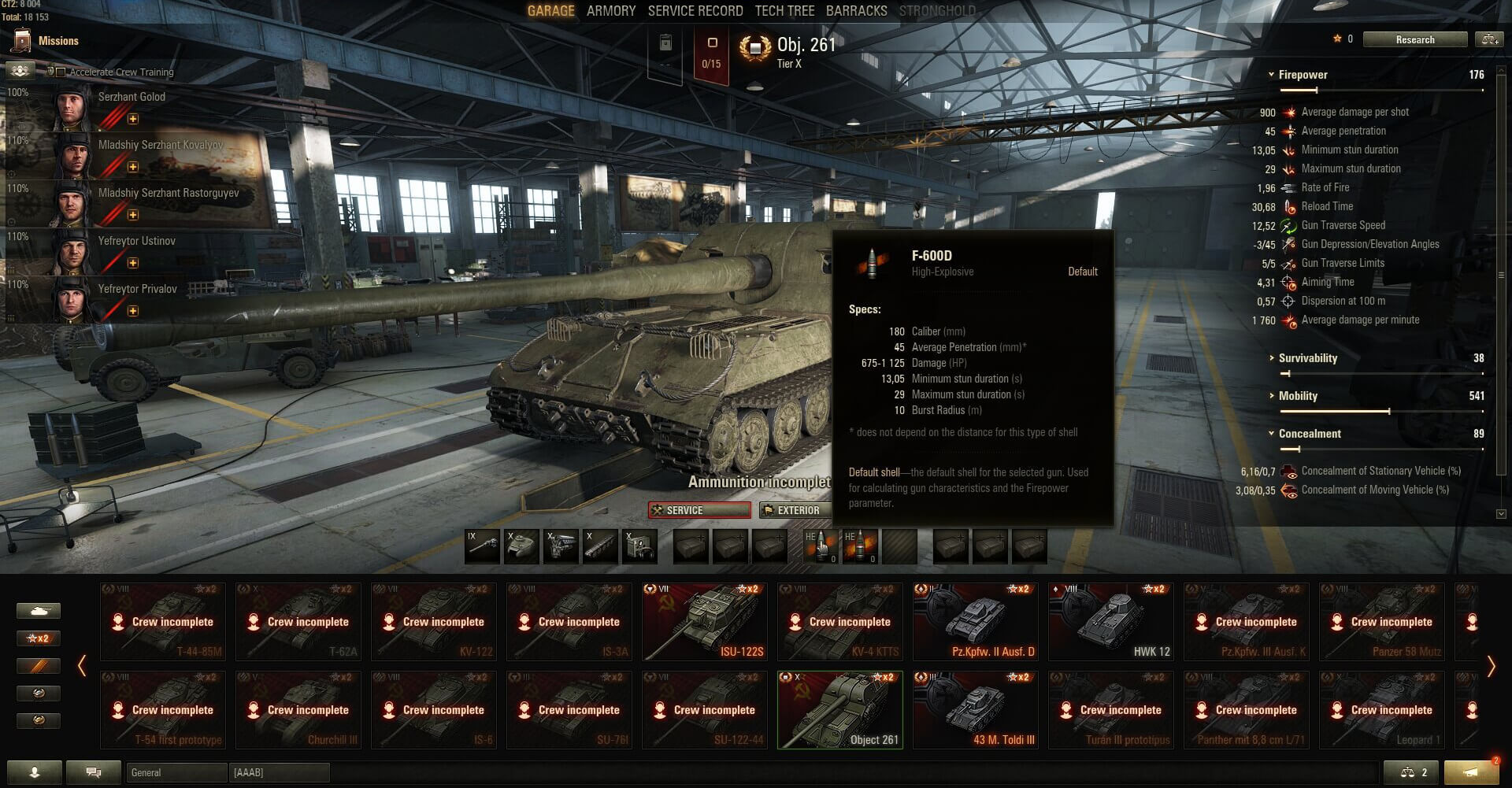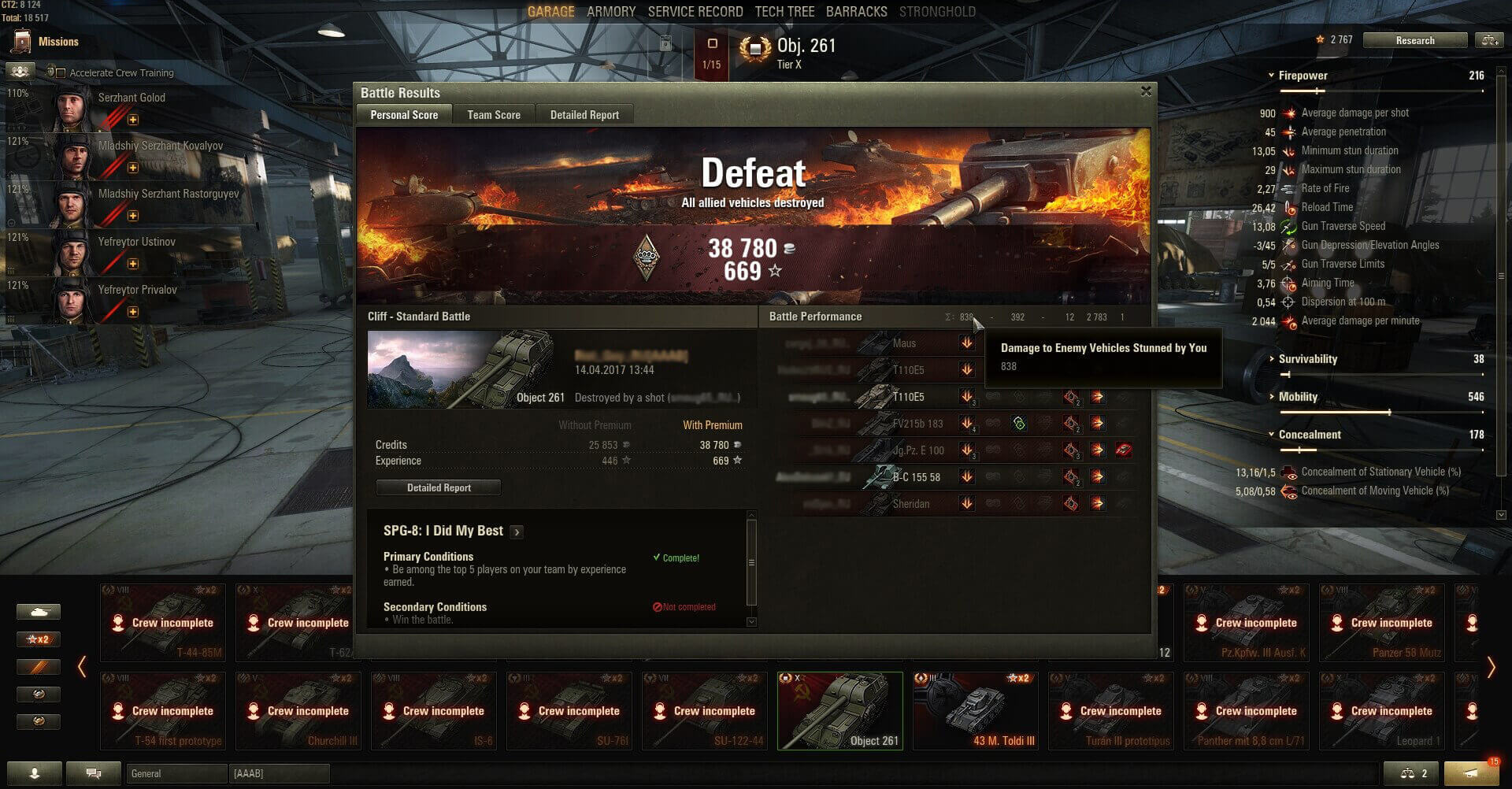SPGs have been a thorn in the community’s side for a while now, whether you drive them (think of poor accuracy and frustratingly long reload times), or are sent right back to the Garage by a shot that came from out of nowhere. However, regardless of how mind numbing and discouraging it can be at times, arty belongs in the game. It just needed a thorough revision to help claim its rightful place on the team and on the battlefield. And it’s getting that in 9.18.
The update introduces a set of changes to SPG combat parameters and mechanics, all designed to make them more team-oriented, exciting and rewarding to play, and far less frustrating to play against. Instead of dealing massive damage, forcing draws and base camping, arty now work in close cooperation with the rest of the team, softening targets and helping set the attack direction from afar. The penalty for being hit decreased and won’t send you back to the Garage. So, heavy tanks are less afraid to push out and lead an assault, which should facilitate a more action-packed, fluid and fun experience for all classes.
We touched upon the changes that turn arty into long-range support fire vehicles in the Common Test announcement. Today, we break them down in more detail, while also talking about arty’s economic and individual battle missions.
Limiting the Number of SPGs
Starting with 9.18, each team has at most three SPGs, and they can’t team up in Platoons. Limiting the number of SPGs per side should stop arty-dominated battles, allowing just enough of them in to effectively support the team without scaring the other side into staying put to avoid being hunted down.
Removing the option to play in Platoons should facilitate team cooperation and aid the matchmaker in creating balanced teams. You were vocal about mismatched scenarios where a Platoon of three SPGs is placed at the top of the list and the team ends up with three long-range support fire vehicles as their main strength. The other frustrating issue was frequent cases of arty giving its all to support fellow Platoon members and totally neglecting the rest of the team. To eliminate both problems, we decided to stop SPGs from forming and joining Dynamic and regular Platoons.
Revised Firing Parameters
Large-caliber guns, coupled with the high penetration values of AP and HEAT shells, allowed SPGs to pierce thick armor, usually dealing fatal damage. This scenario forced draws and base camping; no one wants to be in a game where they barely get to play. Players would rather sit in an arty safe spot and never move than be destroyed with full health.
At the same time, the chances of landing a nice shot with arty’s notorious accuracy, long reload time, and bad dispersion used to be rather low. You chose a prospective direction, waited for the enemy to show up, aimed at a moving target—and missed in most cases. Then you had to wait for another opportunity to shoot. If the story repeated, it made you seriously consider never playing arty again.
When revising arty parameters, we tried to fix both issues:
- To lower the chances of being severely crippled, if not outright destroyed by SPGs, we significantly reduced the penetration and damage per shot for HE shells, while also removing AP, APCR, and HEAT shells for them. Of course, one-shots are still possible if the shell lands on the target and hits its ammo rack, but the chances of it happening are close to zero now.
- To improve gun handling, we decreased SPG dispersion on the move and their reload time, while also improving aiming time and accuracy. It no longer feels like a lottery: you spend far less time preparing your shot, know where the shell will land, and are certain to stun all vehicles unlucky enough to be in the blast radius, whether your shell hits one of them or not. In other words, you have better chances to meaningfully contribute to the team’s efforts.
Stun Mechanic
The all-new stun mechanic is instrumental in reshaping arty into efficient team players. Now, tanks in the arty burst radius (we are talking about 122mm or larger-caliber HE shells) have their characteristics temporarily weakened. It means that SPGs can help turn the tide of battle by supporting the assault from afar. And they can provide their team with a few precious seconds to break defensive lines and catch the enemy by surprise. As for the other camp, arty won’t kick you out from the game in a single shot the way it did. Now the shell burst causes a shell shock to your tank’s Crew, which worsens a vehicle’s mobility, accuracy, and reload time for a brief period. When the stun duration passes, you can fight on.
Stun Duration
If you look up HE shell characteristics, they now include a maximum and minimum stun duration. The actual stun duration consists of two variables, one permanent and one dynamic, and can’t be less than five seconds. The minimum stun duration shows the guaranteed time you’ll spend stunned should you find yourself in the shell burst radius. Plus, you are getting a certain amount of the remaining stun time that depends on the area within the burst radius, the amount of damage you receive from splash, equipment and consumables you mount.
The remaining stun time is the difference between the maximum and minimum parameters.




